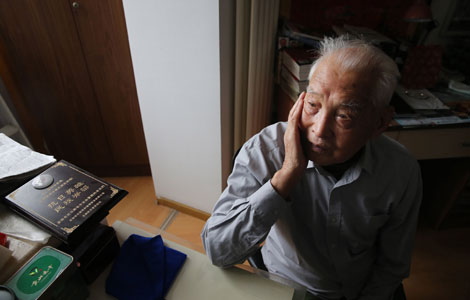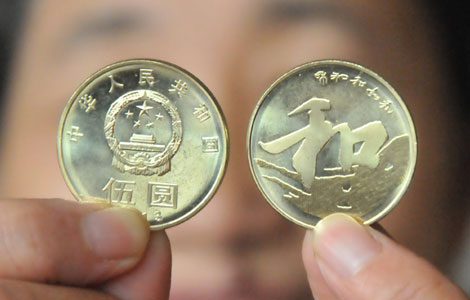China fights corruption more transparently
Updated: 2013-09-24 17:19
(Xinhua)
|
||||||||
BEIJING - China's disciplinary authorities are becoming more and more transparent and open to the public, which will enhance anti-corruption efforts in a visible way.
The Central Commission for Discipline Inspection (CCDI) of the Communist Party of China and the Ministry of Supervision (MOS) on Sunday unveiled a process for handling comments and complaints from the public, in a bid to help whistleblowers better cooperate with disciplinary organs.
The move came after the CCDI and MOS jointly launched an official website and published details of their organization and structure for the first time in history earlier this month, making the once-secretive anti-graft organ more transparent to the outside world.
Not only can those efforts improve its transparency and public image, but also show the central authorities' determination against corruption and enhance work in this regard. It is also the authorities' response to the anti-corruption efforts of ordinary people online.
The Chinese leadership is adopting more channels such as the Internet to strengthen anti-corruption efforts, with a number of high-level officials being punished or placed under investigation, some felled by online whistleblowers.
Liu Tienan, former deputy head of the National Development and Reform Commission, was investigated after a journalist disclosed his suspected economic violations.
In another case, Yang Dacai, former head of the Shaanxi provincial work safety administration, was sentenced to 14 years in jail earlier this month for taking bribes. His corruption was exposed after netizens posted a photograph of him smiling at the scene of a fatal road accident and then a series of photos showing him wearing luxury watches.
However, as the Internet has become a new resource and tool for anti-corruption work, side effects have also been exposed.
Several cases have showed that online anti-corruption efforts by ordinary people may harm the innocent, while some groundless rumors about corruption have wasted the time and resources of the disciplinary body while needlessly inflaming negative social moods.
The disciplinary body's engagement with goings-on online can facilitate anti-corruption work, and at the same time make the anti-corruption efforts of ordinary people through the Internet more reliable.
In the process of dealing with corruption cases, the disciplinary and judicial authorities have also acted in a more transparent way. Former railway minister Liu Zhijun and former Chongqing Party chief Bo Xilai were brought to open trial in recent days. The cases of Yang Dacai and others uncovered online have also been dealt with openly.
In the age of Internet, transparency for the disciplinary authorities is not only viable, it is a necessity.
Most Viewed
Editor's Picks

|

|

|

|

|

|
Today's Top News
BlackBerry agrees to bid to go private
FM: China opposes all forms of terrorism
Microsoft shifts tablet plans for China
GSK's China sales may be down 30% on scandal
China to help deal with chemical weapons
China, Africa 'share destiny'
Maryland, Xi'an seek new link
Trending news across China
US Weekly

|

|













